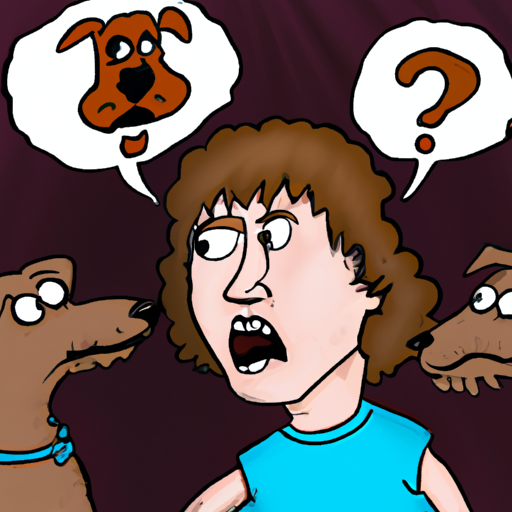Understanding Canine Behavior
Understanding why your dogs fight starts with understanding canine behavior. Dogs, like humans, have their own personalities, moods, and triggers. It’s important to remember that aggression is a form of communication among dogs, often used to establish hierarchy or assert dominance.
- Dominance: Dogs are pack animals and a hierarchical structure is inherent in their social organization.
- Territory: Dogs can become territorial over spaces, toys, food, or even you.
- Fear: Dogs may fight out of fear if they feel threatened or cornered.
- Play: Sometimes dogs may appear to be fighting when they are actually just playing.
Causes of Dog Fights
There are a number of reasons why dogs might fight. It could be due to health issues, lack of socialization, or issues surrounding food or toys.
- Health Issues: Health problems can cause dogs to become irritable or defensive. If your dog is suddenly starting fights, it may be worth getting a check-up at the vet.
- Lack of Socialization: Dogs that aren’t well socialized may not know how to behave around other dogs, leading to fights.
- Food or Toy Aggression: Some dogs are very possessive of their food or toys and may fight to protect them.
| Possible Causes | Solutions |
|---|---|
| Health Issues | Visit the Vet |
| Lack of Socialization | Training or Socializing Classes |
| Food or Toy Aggression | Training or Managing Resources |
Preventing Dog Fights
Prevention is the best cure when it comes to dog fights. Here are some steps you can take to prevent fights:
- Spend time with each dog individually.
- Train your dogs to obey commands.
- Make sure each dog has their own space, toys, and food.
- Use positive reinforcement for good behavior.
- Intervene before a fight escalates.
Dealing with Dog Fights
Despite your best efforts, fights may still occur. It’s important to handle these situations carefully to avoid injury to yourself or the dogs:
- Never physically intervene between fighting dogs.
- Use a loud noise or water spray to distract the dogs.
- Once separated, isolate the dogs in different rooms.
- Consult a professional if fights continue to occur.
Seeking Professional Help
If your dogs continue to fight despite your best efforts, it may be time to seek professional help. A professional dog trainer or behaviorist can help you identify the root cause of the fights and provide solutions tailored to your dogs’ specific needs.
FAQ
Q: Are certain breeds more likely to fight?
A: While some breeds may be more prone to aggression, any breed can fight. It is more dependent on the individual dog’s personality and upbringing.
Q: Should I punish my dogs for fighting?
A: Punishing dogs for fighting can often exacerbate the issue. Instead, focus on reward-based training and preventative measures.
Q: Should I get rid of one of my dogs if they can’t stop fighting?
A: Before making such a drastic decision, consult with a professional. They may be able to provide you with solutions you haven’t yet considered.
Q: Can neutering my dogs stop them from fighting?
A: Neutering can decrease aggression in dogs, but it’s not a guaranteed solution. It’s best to consult with a vet or a professional behaviorist.



